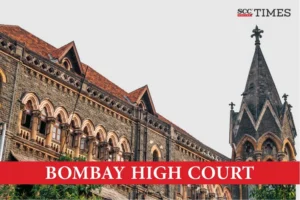Bombay High Court: The Division Bench of M.S. Sonak* and Jitendra Jain , JJ., heard a writ petition wherein the petitioner challenged the show cause-cum-demand notices issued under Section 28 of the Customs Act, 1962 (‘the Act’), in the context of benefits under Customs Notification No. 46 of 2011 dated 1-6-2011 concerning the imports of “Tin Ingots” from Malaysia. The Court while dealing with alleged misuse of preferential trade benefits under the ASEAN-India Free Trade Agreement (‘AIFTA’), held that Article 24 of AIFTA did not deprive customs authorities of their power or jurisdiction to issue a show cause notice. The Court dismissed the petition and held that the authorities were yet to adjudicate the matter, and it was not for this Court to make any observations that would prejudice the interest of the petitioners or the respondents.
Background:
The petitioners were primarily engaged in the business of importing and trading in various products, including Tin Ingots. An agreement (‘AIFTA’) was signed by the Government of India with regards to Trade in Goods under the Framework Agreement on Comprehensive Economic Cooperation between the Republic of India and the Association of Southeast Asian Nations (‘AESAN’) in 2009. According to AIFTA, India agreed to provide preferential tariff treatment for imports of specified goods, including tin ingots, from ASEAN countries after the fulfilment of the Regional Value Content (‘RVC’).
The petitioners had imported Tin Ingots manufactured from Malaysia which were accompanied by a valid Certificate of Origin (‘COO’) issued by the Ministry of International Trade and Industry, Malaysia (‘MITI’). Based on such certification, the petitioners claimed and availed themselves of the benefits under Customs Exemption Notification No. 46 of 2011, dated 1-6-2011, from time to time.
Several domestic industries filed complaints or made representations regarding the import of Tin Ingots from Malaysia, alleging that they had been wrongly availing themselves of the benefits under Exemption Notification No. 46 of 2011. The complaints alleged fraud by misrepresenting the RVC as being above 35 per cent, when in fact it was significantly below 35 per cent.
The Customs Authorities issued the impugned show cause notices under Section 28 of the Act, requiring the petitioners to show cause why the benefits obtained by them through misrepresentation or suppression of correct facts should not be recovered and a penalty should not be imposed upon them.
It was urged that the Customs Authorities lacked jurisdiction to proceed under the Customs Act without the treaty parties or countries first taking recourse to Article 24 of AIFTA, which provided a Specialised Dispute Resolution Mechanism.
Analysis and Decision:
The Court stated that Section 28 of the was quite exhaustive and held that Section 28 conferred ample powers upon the Customs authorities to investigate into and adjudicate upon violations due to misrepresentation, suppression or fraud. The Court further explained that based on the provisions of Section 28-DA, it could not be inferred that the pre-amended provisions of the Act prevented the Customs Authorities from exercising powers under Section 28 of the Act and investigating cases of misrepresentation, suppression, or fraud.
The Court stated that there was no legal or jurisdictional infirmity in the issue of such show cause notices. The provisions of Article 24 of AIFTA did not deprive the customs authorities of their powers or jurisdiction to issue such show cause notices. The Court held that the primary argument that the impugned show cause notices were ultra vires for failing to comply with the provisions of Article 24 of AIFTA lacked merit.
The Court referred to Trafigura India (P) Ltd. v. Union of India, R/Special Civil Application No. 14028 of 2020, wherein the Gujarat High Court interpreted the provisions of Section 28 and concluded that suppression of facts implicatory could be a ground for invocation of the said provision.
The Court held that the Customs Authorities were yet to adjudicate the matter, and it was not for this Court to make any observations that would even remotely prejudice the interest of the petitioners or the respondents. However, attempts to stall or prevent the adjudication proceedings, as outlined in the impugned show cause notices, could not be encouraged when exercising the extraordinary and equitable jurisdiction under Article 226 of the Constitution.
The Court dismissed the petition and rejected the contention that the impugned show cause notice was ultra vires for failing to comply with the provisions of Article 24 of AIFTA.
[Purple Products (P) Ltd. v. Union of India, 2025 SCC OnLine Bom 2367, decided on 13-6-2025]
*Judgment authored by: Justice M.S. Sonak
Advocates who appeared in this case :
For the Petitioner: Vikram Nankani, Senior Advocate
For the Respondent: Jitendra B Mishra with Sangeeta Yadav and Rupesh Dubey


